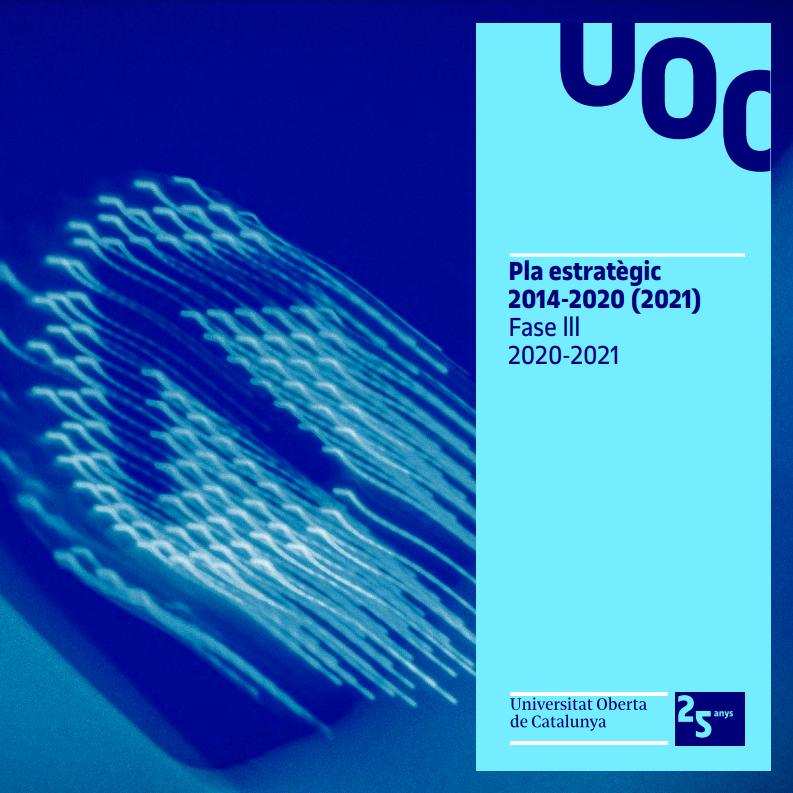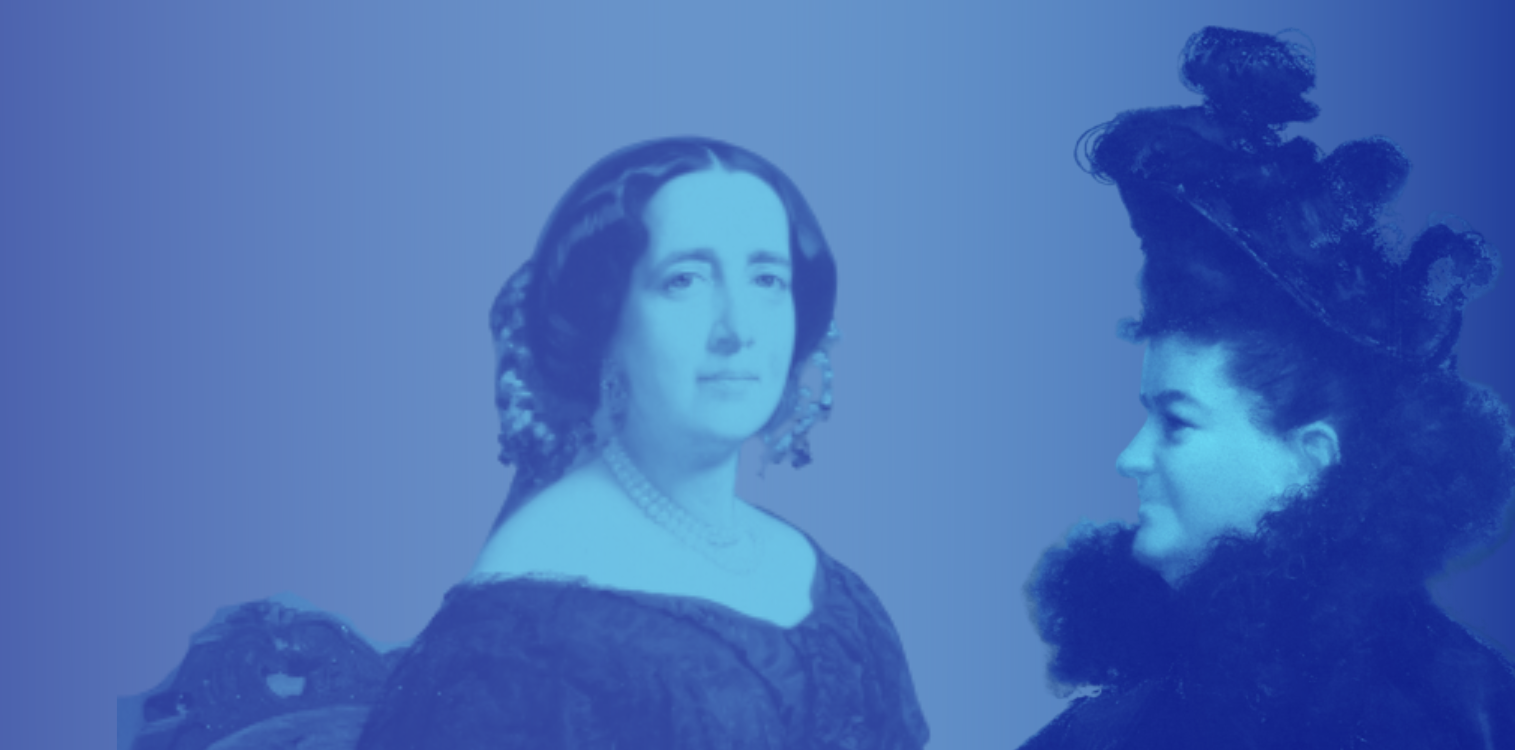Presentation
The UOC’s Library forms part of the University’s educational model. It is a key service made available by the University to support learning, teaching, research and management.
The Library was created and has been developed online since the UOC itself began. It is, then, a tool designed in and for a virtual world to meet the needs of its users and those who use the web for research, training and academic documentation.
What the UOC community says
How the Library team tells it
The full video
Learning resource
Learning resources are a key part of the University's educational model. Without them, it would not be possible to perform the activities proposed in the classroom.
The team of professionals support the faculty in choosing and producing the most suitable learning resources to help students.
Before the start of a new academic year, the teaching staff ask the University to prepare new learning resources. If this is not feasible, they ask for input from their faculties' reference librarians about choosing other resources that are already available on the publishing or audiovisual market.
The UOC's eLearning Innovation Center (eLinC) supports faculty in the courses' and programmes' instructional design and works from different disciplines to offer students the best learning experience.
The UOC's production team is also involved in creating new learning resources. Their role is to assure the contents' quality and their compliance with intellectual property rights. These professionals contact the content providers and track the editing process until the final result's validation with the teaching staff.
Quality policies
The Library is closely involved with the implementation of internal quality assurance (QA) systems, and thus participates in all the initiatives arising therefrom for the continuous improvement of processes.
The library participates in the UOC's QA model, which is based on the AUDIT internal QA system manual, ensuring continuous improvement in the services it offers its different types of users.
Each year, the library provides data on its services' performance for a course monitoring report. Additionally, it produces a report on its overall functioning, containing details of how the different departments and their teaching staff have helped shape its collection, information on user satisfaction and suggestions for improving the way it operates.
In accordance with its quality policy, which has always been integral to the way it operates, the UOC opted to participate in the AUDIT programme to design an internal QA system (IQAS). As the IQAS is applicable to each of the UOC's departments, it covers every activity the University carries out or looks to carry out. It thus guarantees the quality of teaching at the UOC, giving the University's different types of users greater scope for participation, as well as establishing continuous improvement and review mechanisms.
The adaptation of the design of the IQAS to the whole of the UOC was ratified by the AQU (Catalan University Quality Assurance Agency) on 1 October 2009. The revised manual will affect all the courses leading to official qualifications being taught at the UOC when the IQAS is implemented, and all those authorised for academic years subsequent to 2008-2009.
In relation to the library, the UOC's IQAS specifies the following:
“Data on use and satisfaction is obtained for all services. Those responsible for each service periodically analyse its specific data. The data corresponding to all services is analysed as a whole in a report on results. Once the data has been analysed, proposals are made and set out in the corresponding evaluation report. The library produces a report on its QA activity each academic year. The report serves to raise awareness of the activity in question, its results, and the improvement-oriented measures and innovative steps taken to fulfil users' requirements and enhance service quality.”
The library also actively participates in the REBIUN (University Libraries Network) Statistics Work Group.
Library's regulations
The UOC Library's regulations were originally approved by the Executive Board on 9 December 2013. An updated version was approved by the Board on 26 July 2021.
These regulations set out the Library's services and establish the rules to ensure the university community use them correctly. The regulations are currently being updated, which means that some of the names of the services do not match those currently used on the new website. Take a look at the table showing which services correspond to which (in the Key changes section).
Attention! We are currently updating the content of the Loan Service.
Institutional relations
Belonging to associations, participating in networks and work groups, and establishing agreements are key factors in improving services and maximising the amount of content available to users of the UOC’s Library.
The Consorci de Serveis Universitaris de Catalunya (CSUC) aims to improve library services through cooperation.
In addition to the UOC, which has been part of the association since 1995, the CSUC’s members include the University of Barcelona, the Autonomous University of Barcelona, the Technical University of Catalonia, Pompeu Fabra University, Rovira i Virgili University, the Library of Catalonia and the Catalan government’s Ministry of Universities, Research and the Information Society
The CSUC’s two main projects are the Catalan University Union Catalogue (CCUC) and the Digital Library of Catalonia (BDC).
The UOC’s Library participates in the following CSUC work groups:
- Union Catalogue
- Online Teaching Materials (MDX)
- Repositories
- Mendeley
- Open-Access Catalan Journals (RACO)
- Electronic Resources (RELECTRO)
- Online Doctoral Theses (TDX)
- Support for Research
- Association Inter-library Loans and Access (PICA)
The UOC’s Library has been a member of LIBER, the Association of European Research Libraries, since 2010 and participate with Working Group on Research and Education.
LIBER aims to represent the interests of European research libraries, their universities and their researchers. It promotes innovative, efficient, high-quality information services for teaching, learning and research, as well as access to research information in any format and the preservation of cultural heritage.
The Open University Library and the UOC’s Library signed an agreement in 2002 to share experiences and work together on research projects related to digital libraries.
The UOC's Library is leading a group of experts in Knowledge Resources as part of the international EMPOWER project from the European Association of Distance Teaching Universities (EADTU). The aim of EMPOWER is to link knowledge assets with learning units, creating specific knowledge libraries bound to specific subject curriculums in traditional and online universities.
Coinciding with the recent presentation of the UOC Open Knowledge Action Plan, and in keeping with the tools and processes the University must carry out for a model more committed to scientific knowledge as a public asset, the UOC has become a member of the Confederation of Open Access Repositories (COAR).
COAR is an international association with over 140 members and partners worldwide that represent libraries, universities, research institutions, government funders, repository networks and others. Its mission is to improve the visibility and application of the research results through a global network of open access repositories based on international cooperation and interoperability.
As a full member of ECPR (European Consortium for Political Research), the UOC community enjoys a wide range of benefits the consortium offers. Once you have registered (using your UOC email address) on their web site, you will be able to access publications from the ECPR Press, the Comparative Politics book series, the Research Methods book series and the following journals:
- European Political Science (EPS)
- European Journal of Political Research (EJPR) and its Political Data Yearbook (PDY)
- European Political Science Review (EPSR)
- Political Research Exchange (PRX)
To get full details on the services offered, visit.
Agreements
The UOC Library has signed a series of collaboration agreements with different universities and institutions, most of which provide library access and use of loan services respectively.
Below is a list of university libraries and institutions with which we have some kind of agreement. It is important to pay close attention to the conditions established for each university or institution.
If you have questions on how to use these agreements or experience any problem when using them, please contact the Virtual Library.
Please note: Regarding the possibility of accessing the facilities of some university libraries, we must point out that the University of Barcelona, Autonomous University of Barcelona, Technical University of Catalonia and Pompeu Fabra University have agreed to set access restrictions for people who not members of their university community in times of excess demand, as for example during exams or exams.
Access to facilities: permitted. There is a collaboration agreement that allows you access to their libraries, except the Study Rooms. Priority is given to members of their own university community in times of excess demand, as for example during exams.
Loan: see Catalan University Libraries Loan section.
Identification required when requested by staff: UOC ID card.
Web
Access to facilities: permitted. The collaboration agreement allows access to the libraries, except the Study Rooms.
Loans: as established by the loan rules of the UA library.
Identification required: go to any loan desk with your UOC ID card, or if you do not have one, with a photocopy of registration and identification. You will be registered as a user and staff will explain to you how to use the service.
Web
Access to facilities: permitted. There is a collaboration agreement that allows you access to their libraries, except the Study Rooms. Priority is given to members of their own university community in times of excess demand, as for example during exams.
Loan: see Catalan University Libraries Loan section.
Identification required when requested by staff: UOC ID card.
Web
Access to facilities: permitted. There is a collaboration agreement that allows you access to their libraries.
Loan: see Catalan University Libraries Loan section.
Identification required when requested by staff: UOC ID card.
Web
Access to facilities: the University of A Coruña allows access and use of different services from their libraries to professors, scholars and students from other universities with the requirements established by the libraries of each Department, except the Study Rooms.
Web
Access to facilities: permitted. The collaboration agreement allows access to the libraries, except the Study Rooms.
Loans: a maximum of 2 works for 7 days.
Identification required: go to any loan desk with your UOC ID card, or if you do not have one, with a photocopy of registration and identification. You will be registered as a user and staff will explain to you how to use the service.
Web
Access to facilities: permitted. There is a collaboration agreement that allows you access to their libraries, except the Study Rooms.
Loans: a maximum of 3 works for 7 days.
Identification required: go to any loan desk with your UOC ID card, or if you do not have one, with a photocopy of registration and identification. You will be registered as a user and staff will explain to you how to use the service.
Web
The University of La Rioja has developed the Dialnet project. It provides access to Spanish-language research, collecting it from the sources it is published on and making its different documentary services and resources available freely and without cost to any user on the internet.
Dialnet is a bibliographic information portal. Its main aim is to raise the profile of scientific literature in Spanish as much as possible. The Spanish university libraries working on the project benefit from value-added services through Dialnet Plus.
Web
Access to facilities: permitted. There is a collaboration agreement that allows you access to their libraries, except the Study Rooms.
Loan: see Catalan University Libraries Loan section.
Identification required when requested by staff: UOC ID card.
Web
Access to facilities: permitted. The collaboration agreement allows access to the libraries, except the Study Rooms.
Loans: a maximum of 5 works for 7 or 10 days depending on the library.
Identification required: go to any loan desk with your UOC ID card, or if you do not have one, with a photocopy of registration and identification. You will be registered as a user and staff will explain to you how to use the service.
Web
Loan: see Catalan University Libraries Loan section.
Identification required: UOC ID card.
Web
Access to facilities: permitted. The collaboration agreement allows access to the libraries, except the Study Rooms.
Loans: a maximum of 3 works for 7 days.
Identification required: go to any loan desk with your UOC ID card, or if you do not have one, with a photocopy of registration and identification. You will be registered as a user and staff will explain to you how to use the service.
Web
Access to facilities: permitted. There is a collaboration agreement that allows you access to their libraries, except int the Study Rooms. Priority is given to members of their own university community in times of excess demand, as for example during exams.
Loan: see Catalan University Libraries Loan section.
Identification required: UOC ID card.
Web
Access to facilities: thanks to an agreement between the member universities of the Consortium of Academic Libraries of Catalonia (CBUC), entrance to the PFU library is guaranteed to professors, researchers, PhD students, postgraduate and master’s degree students, and management staff. This agreement does not benefit 1st and 2nd cycle students from any other Catalan university.
Priority is given to members of their own university community in times of excess demand, as for example during exams.
Loan: see Catalan University Libraries Loan section.
Web
Loan: see Catalan University Libraries Loan section.
Identification required: UOC ID card.
Web
Access to facilities: permitted. There is a collaboration agreement that allows you access to their libraries, except the Study Rooms.
Loan: see Catalan University Libraries Loan section.
Identification required: UOC ID card.
Web
Internships 24-25
The UOC Library has opened six calls for applications for non-curricular internships.
Sign up to the UOC Library internships
No coffee or photocopies! You will be able to train in a real work environment to support specialist personnel.

-
You’ll learn alongside a team of professionals. Get to know us!
-
You’ll have a flexible timetable so you can combine the internship with your studies.
-
You’ll get to know a Library born in the digital era that mentors students, researchers and teaching staff in their work.
-
No fetching coffee or making photocopies! On this internship, we want you to say what you think and play an active role.
The internship will take place online, although we may ask students to attend occasional in-person team meetings at the internship centre, located in the UOC's Barcelona centre (Rambla del Poblenou, 156).
Information search and selection of learning resources
Responsibilities:
- Support for the Library team: You will assist with day-to-day tasks such as bibliographic searches and the selection of learning resources.
- Creation of library guides: You will collaborate in selecting information sources for the publication of guides on various topics covered in UOC classrooms, such as speech therapy or fake news.
- For the duration of the internship you must be enrolled on one of the following programmes: bachelor's degree, diplomatura, llicenciatura/licenciatura, enginyeria/ingeniería, master's degree, postgraduate course or specialization course.
- If you are on first cycle or bachelor's degree programmes, you need to have passed 50% of the programme's credits (from the total of all the credits you have passed, recognized and enrolled on).
- The internship must be related to your programme.
If you’re a UOC student, access the internships tool and select the option UOC non-curricular internships. Register and you’ll be able to access the list of offers.
If you’re not studying at the UOC, send an email with your CV to coopedu@uoc.edu, indicating the title of the internship.
Strategic Plan UOC
The UOC Strategic Plan is the road map that accompanies the University's strategy and helps prioritize decision making. To reinforce the operating stage of the plan, each of the six action plans is led by a member of the Executive Management Committee.
Global impact #2030Agenda
The UOC is a global university committed to the 2030 Agenda for Sustainable Development.
The Library team also contributes to overcoming today's major global challenges by promoting open knowledge and helping to integrate the gender perspective in teaching and research.
Our commitment to achieving the Sustainable Development Goals (SDGs) has led us to collaborate with the Camilo José Cela University Library to promote joint awareness-raising actions around the 2030 Agenda, such as this compilation of content on Emilia Pardo Bazán and the Shared narratives campaign to highlight the legacy of women writers.
The Library and the gender perspective
We work with others to mainstream the gender perspective in teaching and to ensure that all courses have learning resources and content that are free from gender bias and that highlight the role of leading female figures.
We also help to promote and highlight gender equality in research and knowledge transfer.
The Library and the UOC's Gender Equality Plan
The Library participates in the UOC 2020-2024 Gender Equality Plan, which is the roadmap for reducing gender inequality in the university sphere.
The Library helps to deliver on the goals of the UOC's Equality Plan through the following actions.
Other tools and resources
We also provide content and resources on key dates to provide students and teachers with materials related to gender studies or to help them raise the profile of affective, sexual and gender diversity.
Gender perspective – Learning resources
"How does the Library contribute to the integration of the gender perspective in teaching at the UOC? Dialogue with the Equality Unit"







